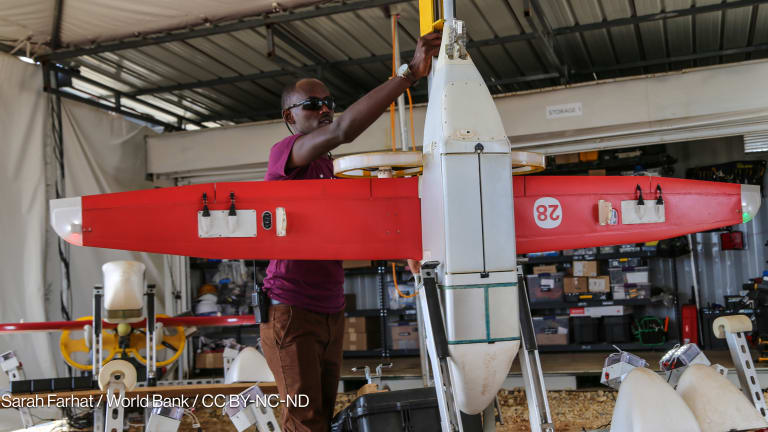
Don’t have time to read the 88-page Quadrennial Diplomacy and Development Review released by the U.S. State Department and U.S. Agency for International Development last week? Not to worry. Here’s all you need to know, in six tweets — of 140 characters or less:
1. Mostly tells us what they’re already doing. Good to know, but not the main purpose of the exercise.
2. Commendable priorities: preventing violent extremism, promoting democracy, advancing economic growth, addressing climate change.
3. Weak on details. The new priorities tend to be vague, lacking the details that would make the recommendations actionable.
4. Avoids hard questions. Nothing that requires legislation, budget amendments or reorganization. Nothing they will stop doing.
5. But the process was great. Open, consultative, collaborative, honest and nonbureaucratic.
6. Needs to be operationalized. It’s not self-implementing, and won’t result in change without specific guidance and strong leadership.
For those of you who remain unconvinced foreign aid policy analysis can be boiled down to hashtags and retweets, here's the lowdown on what else you might need to know about the 2015 QDDR.
The lowdown
The recognition that we have moved from an age of information scarcity to one of information saturation could be one of the most far-reaching and consequential findings of the report.
What will it take to shift the State Department from a secretive, cable-writing culture to one of sharing and learning? Enhanced use of data and analytics and a strengthened commitment to knowledge management are woven throughout the report, but giving data a greater role in policy, planning and decision-making is likely to prove an enormous challenge.
This QDDR avoided repeating painful battles over the structure and organization of the department’s (and USAID’s) conflict and crisis-response units. Instead, it addressed some of the key process gaps: use of local research and analytical tools to identify drivers of extremism, systems for bringing early warning data and fragility assessments to the attention of key decision-makers, and flexible funding and support for conflict and atrocity prevention. Operationalizing these changes could substantially upgrade State’s capacity for early action.
Although the QDDR identified the need for more professional training opportunities in all four priority areas, and better integration of all of them into State’s culture and operations, it was economic diplomacy that received the lion’s share of attention. Clear and specific proposals were offered for adding economists at USAID and creating an economic career board at State to recruit economic expertise; designating a deputy assistant secretary in each regional bureau to lead on economic issues; placing a USAID officer on each State regional bureau economic team and a State economic officer in each USAID regional bureau; and increasing opportunities for details, rotations and exchanges for economic officers.
I found myself wondering whether economists — as opposed to data geeks, business and finance experts, or scientists — are what the department really needs.
The QDDR also correctly identified the need for greater risk-tolerance as a fundamental precondition for promoting innovation and for working effectively in complex, dangerous environments. But all it takes is one glance at the politics around Benghazi, Libya, to realize that Congress is in no mood for risk-taking. Thus here the QDDR’s recommendations were most timid: “launching a discussion with Congress and the American people” and “exploring ways to streamline operations and increase flexibility in dangerous environments.”
The real impact of the QDDR will only come once there are specific individuals tasked with leading the implementation of each policy change, and when detailed guidance is issued to put the changes into effect. After all the hard work that went into the review, and the many laudable proposals that came out of it, it would be a shame to stop here and declare “mission accomplished.”
Let’s hope the next phase will be as open, consultative and participatory as this one.
Join the Devex community and access more in-depth analysis, breaking news and business advice — and a host of other services — on international development, humanitarian aid and global health.
Search for articles
Most Read
- 1
- 2
- 3
- 4
- 5








